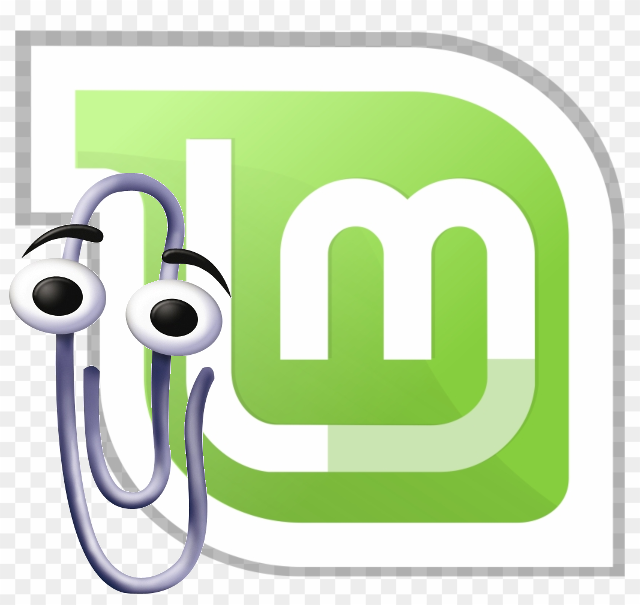- cross-posted to:
- linux@lemmy.ml
- cross-posted to:
- linux@lemmy.ml
Ubuntu was once an okay-ish distribution, many many years ago. Then Canonical got rogue, made some very sketchy and irritating decisions (walled garden, snap, advertisements with Amazon, now advertisements in their package manager, … so much more)
Ubuntu is the bane of Linux. Use upstream Debian if you like apt; Linux Mint for an easy entry; Arch, if you’re quick of wits and want to widen your knowledge and skillset.
I still love Ubuntu, but I understand people who hate it. Ubuntu definitely ain’t for everyone.
Fedora if you want a pretty stable RPM distro with pretty new packages, openSUSE if you want a traditional distro (Leap) or a bleeding edge distro (Tumbleweed), and Void if you want something spicy.
Wait…Ubuntu is only 20? What’s the first linux? I thought ubuntu was older.
Suse Linux, Debian and slackware are way older than Ubuntu.
Red Hat
The fact that Ubuntu is derived from Debian logically means it wasn’t the first Linux-based OS.
But how would I know that?
This is gonna blow your mind. There this thing called the internet, and people put loads of information on it. You can access this using “websites” called “search engines” that index all the content.
Doesn’t make for good conversation or content my guy
According to this, the first was Boot-Root from Torvalds himself in 1991. The oldest that are still around are Slackware (July 1993) and Debian (Aug 1993).
I wonder if someone could still install boot root? I’m not a techy person, but I’d watch the hell out of that YouTube video!
Sadly, I did not find Boot-Root 1991 but found these:
https://archiveos.org/linux-from-nascent/
And boot-root 2002:
Dang, that would have been a cool one to see!
I’d love to see what those looked like back in the day. I love computer history, even if I don’t fully understand it. Haha
Slackware was the first real distro, which means you could reasonably expect to get to a bootable state by following the manual, and have a useful system out of the box.
And it’s the oldest that’s still around.
Tried both Ubuntu 24.10 and Kubuntu 24.10 and original flavour ubuntu lost to both kubuntu’s performance and customizability.
My daily driver was 6.06 up to 8.x I think. Only had minor encounters with it since. And here I am still fooling myself into thinking „I’m pretty familiar with Ubuntu“ 😅
Been using it as my daily driver for the last couple of years and I am very happy with it.
When there are issues they are solvable, and the options for getting software, via apt, snap, flatpak, etc. Means that I can really pick and choose how I use my machine.
Even gaming is so much better than it used to be. A lot of things just work.
Very happy with it, and the latest update was quite a nice little refresh of the UI.
My absolute favourite part of the update is being able to save things to “Starred” files directly from the download window. I didn’t realize how much it bothered me.
Y’all making me want to try Ubuntu again. It was go to whenever I dual booted, but finally made the full time switch to fedora a while back. Maybe I should dual boot fedora/Ubuntu for the fun of it. Haha.
Don’t. I just set up a Linux Mint system for someone. I had a hell of a time trying to figure out the convoluted network and dns systems.
I use Windows on the desktop right now, but if I switched to Linux, it would probably be Fedora. I’d suggest sticking with that.
Linux mint is fantastic breh. You’re doing something wrong.
Probably. But it shouldn’t be that difficult to just set the damn DNS servers. Used to be you just edited resolv.conf and that was it.
I don’t do anything in depth enough for those things to really impact me. I’m mostly a browser and Google docs person. Honestly, my biggest gripe with fedora isn’t even a fedora problem, it’s just that anytime I look up how to do something, it gives Debian based instructions and I get a little lost trying to figure out how to do it on fedora.
Usually it’s not that different, though substitute dnf for apt, and package names might be slightly different. If you find instructions for Fedora, Red Hat, CentOS, Rocky, or Alma they’re usually all compatible since they’re all derived from the same source.
Until you realise that apt on ubuntu installs snap stuff
Until it’s wings “Snaps”.
Ubuntu does so much good, this is one thing I wish they would abandon.
Or at minimum, not have it as the default option.
Even without Snaps, Ubuntu isn’t good anymore.
It’s buggy as hell, and never manages to do a release upgrade without breaking.And every time you do an
apt update, it fucking tells you that there are more updates available if you upgrade to Ubuntu Pro.Not completely free Ubuntu Pro!
It’s not completely free.
You pay with your telemetry data and your email address.I’m pretty sure you don’t pay with telemetry data.
Well, I’ve read their entire TOS and Privacy Statement before I commented.
Better to use Kubuntu edition, much better desktop and less crap that is nowdays in Ubuntu.
Insert witty comment on how Snap is apparently the worst thing on Earth
(I don’t use Linux. Why’s it so hated?)
I used Ubuntu at work a couple of years ago. When they announced the switch to snaps I didn’t really care, but when they switched Firefox to the snap version it had quite a few issues like really slow startup, inconsistent theming, and problems with some extensions. So I uninstalled the snap, installed the standard DEB and went on with my work.
But then the issues came back, and it took me some time to figure out they had replaced the actual DEB package with an unholy shim which just installed the snap. THAT really pissed me off, so when I got a new laptop I just installed Arch and my only regret was not doing it sooner.
I don’t use Linux either, but a quick bit of research tells me it’s like an App Store and software that is specific to Linux. It allows for ease of installing/uninstalling programs but it can can run slow, seems redundant to what flatpaks already does, and isn’t fully fleshed out which leads to weird errors.
I’m guessing it’s because Linux is more hands on and this takes some agency away from users who feel like it might hurt privacy?
That’s what I’m reading anyway. Someone who is more familiar can correct me if I am off base.
One of the things missing from other comments is the architecture of it, why it use to be slow, and how the binaries were handled. Canonical started Snap as a server oriented application deployment system, that has been adapted to desktop use with some technological debt. The differences between it and Flatpak as far as configurability, dependencies, bundled binaries, etc are somewhat nuanced. They dealt with the application speed opening issue by allowing decompressed executables and different hooks to be used.
The other main point of contention aside from technological debt inherited by a server-first development principle is how they closed sourced their Snap server backend. It’s proprietary, while the Snap client is open source, how the actual Snap server runs is a mystery.
Flatpak (and by extension Flathub) are all open sourced, which aligns more with the philosophy that users tend to prefer. It was covered in other comments that everyone else uses Flatpak, and this really isn’t so much as a debate between package managers vs Flatpak, but moreso of application deployment overall. The community prefers Flatpak, and Snap is pushed as a means of lock-in and sunk cost fallacy on the side of Canonical.
The issues are twofold: Linux distros historically update software through a package manager. Something that was working fine for everyone, however it was causing a lot of work for maintainers. They got together and designed a packaging format for software that works across all Linux distributions called ‘flatpak’. However, Ubuntu decided to create an alternative called Snap, which solves the same problem, except it’s not used by anyone else.
Also, there’s some implementation details that make it look messy in your system (every application is mounted as it’s own filesystem, so if you use tools to list your disk’s there’s a bunch of weird spammy looking drives and things like that).
Native package managers were not “working fine for everyone”, the software and libraries in them are often very outdated and contain custom patches that don’t come from the original software authors.
So you often end up dealing with bugs that were already fixed and the fixes released months ago.
That’s one of the main reasons I use a rolling release distro. I used Arch for years, and now I use Tumbleweed.
With packaged apps (like flatpak, snap, etc), you can end up with outdated dependencies in those apps because they bundle everything together. So instead of fixing bugs once for everyone, you have to pester each individual package maintainer to update the dependencies. However, this is mitigated by having these apps be somewhat containerized and limiting impact of a breach on other apps, so YMMV depending on what kind of sandboxing you use.
I’m not really decided here, and I use both flatpaks and distro packages. I don’t touch snaps though.
That sounds like the maintainer’s problem, not a problem with apt/dnf/whatever. We’ve had automated build processes for decades. If you want stable, use a stable distro; if you want the latest, use a rolling release like Arch or something.
Didn’t it also used to be noticeably slower than apt installed apps? This was one of the reasons I got rid of it at the time, Ive heard it has better performance now but not tried it.
I think that’s mostly solved, but yeah, some of the sandbox stuff affected performance.
Awesome! Thank you for this explanation. So it’s mostly just because it’s a redundancy and specific to a certain distro (Ubuntu in this case)?
No, redundancy is fine. It’s the proprietary backend and Ubuntu forcing it on users that people don’t like.
Specific to Ubuntu, not very open for collaboration, and operated by the company who owns the Ubuntu trademarks. Additionally they’ve made it unnecessarily difficult to install non-snap versions of many popular packages. (they removed non-snap versions from upstream Debian repositories).
Oracular Oriole sounds like it’s just a few letters away from a PornHub search term.
Also, Ubuntu used to be good 16 years ago.Is it still using systemd to fuck up established systems like DNS?
Man, I wish there were a single DNS system that everyone used. Every time I try to figure out how a distro is handling DNS, it ends up being some weird backend to puzzle out. Yet for some reason there’s always a resolv.conf that may or may not be getting ignored so I go about twisting dials that often aren’t connected to anything.
I don’t care if it ends up being a systemd module, just standardize and document it, ffs.












